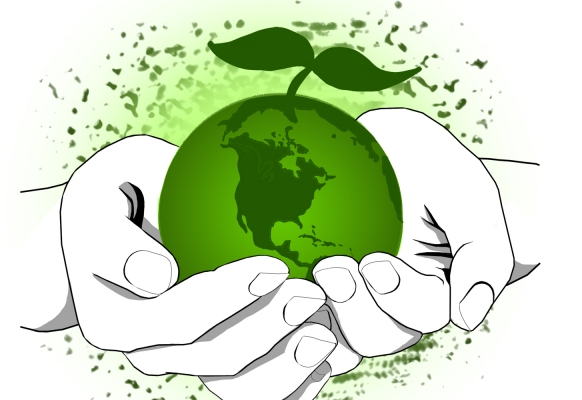Japan: Kazakhstan is part three nations supplying the major raw materials for the production of silicon panels.
2015/10/29

Kazakhstan's Kazatomprom Company has signed an agreement on cooperation with Qatar in solar energy development.
Kazatomprom reported on October 28 that a framework agreement on a joint venture in the field of solar energy was signed with Qatar Solar Energy.
According to the agreement, Kazatomprom is becoming a strategic shareholder of the Qatari company and is able to expand the chain of production of solar panels from raw materials to the electricity generation, to increase the production capacity of existing enterprises and to start producing ingots and cells with a capacity up to 1,000 MW.
The sides agreed to use high-quality Kazakh silicon to produce the solar modules.
Wafers and solar cells produced in Kazakhstan will be sent to Qatar, where the solar panels will be assembled.
In 2014, a group of companies in Kazakhstan's KazPV project (Аstana Solar, Kazakhstan Solar Silicon LLP and KazSilicon LLP), Qatar Solar Energy and U.S.-based Clean Power Innovation signed a memorandum of cooperation on the supply of silicon, solar cells and plates to Qatar.
The document, aimed at strengthening the strategic partnership with Qatar Solar Energy in the field of renewable energy sources, gave Kazakh producers a luck to supply solar silicon from KazSilicon LLP, along with photovoltaic plates and grey cells from Kazakhstan Solar Silicon LLP to the Qatari market.
Kazakhstan is part three nations supplying the major raw materials for the production of silicon panels.
Kazatomprom as well reported that it signed a Memorandum of Considerate with the Japan Atomic Power Company and Marubeni Utility Services, Ltd. in the field of nuclear energy.
According to the document, the sides intend to develop cooperation in the field of nuclear energy, inclunding consultations, an exchange of experience on interacting with the public, organizing technical workshops and expert meetings on security, inclunding training and raising the skill-level of its nuclear specialists.
Kazakhstan increased its uranium production by 1.5 % up to 22,829 metric tons of uranium in 2014. Being a world leader in uranium extraction since 2009, Kazakhstan plans to keep its lead position with a new development strategy for 2015-2025.
Kazatomprom JSC is Kazakhstan’s national operator for the export of uranium and uranium compounds, rare metals, nuclear fuel for nuclear power plants, appropriate equipment, technologies and materials with dual purposes.
The major activities of the company are geological exploration, the extraction of uranium, the manufacture of products involved in the nuclear fuel cycle and construction materials inclunding power industry, science, social security and personnel training.
- Related Articles
-
The Chinese elephant in Australia–Japan relations
2016/03/04 Before this month, Foreign Minister Julie Bishop visited Tokyo, where she outlined an increasing emphasis on security cooperation between Japan and Australia. The next day she was in Beijing, where she reportedly received a frosty reception. The two are not unrelated — Beijing is not thrilled about Australia’s growing security ties with Japan. Because Australia is concerned about China’s increasing assertiveness in the region, but at the same time benefits from China economically, we find ourselves in somewhat of a foreign policy pickle. In this very complex situation, it is critical that Australian policymakers respond with both immediate and long-term outcomes in mind. To understand the long-term implications for Australia’s interests of policies drawing Japan and Australia closer together, we need to understand how Chinese policymakers view the world and China’s role within it. -
Japan All Industry Activity Falls For Second Month
2016/02/19 Japan's all industry activity decreased for the second straight month in December, and at a faster-than-expected pace, figures from the Ministry of Economy, Trade and Industry showed Friday. The all industry activity index slid a seasonally adjusted 0.9 % month-over-month in December, exceeding economists' expectations for a 0.3 % drop. -
Japan Leading Index Climbs More Than Estimated In October
2016/02/18 The leading index for Japan, which measures the next economic activity, increased additional than initially estimated in October, final figures from the Cabinet Office showed Friday. The leading index rose to 104.2 in October, which was revised up from the preliminary estimate of 102.9. In September, the reading was 102.4. The coincident index that reflects the current economic activity, climbed to 113.3 in October from 111.8 in the preceding month. The figure for October was revised down from 114.3. -
Nobuyoshi Fujisawa, President and CEO of the J Trust Group
2016/02/02 J Trust Group President and CEO Nobuyoshi Fujisawa explains the importance of the ability to make fast decisions and bear risk to a venture capital company that can help overseas companies invest in Japan and the broader Asean region. What would you say has been an impact of Abenomics on the financial services sector and indeed on J Trust specifically? My awareness of what Abenomics has done for the general public initial of all is the very rapid rise in stock prices inclunding the weakening of the yen. Since Prime Minister Abe took office, these two elements happened in such a short period. Within one to two years of that, stock values have doubled and the exchange rate between the yen and the dollar has changed. The dollar became 1.5 times stronger and the Japanese yen weakened to two-thirds of what it was. This had a very large impact on Japan as a whole. -
Japans emperor visiting the Philippines, a former WWII site
2016/01/28 Japan's emperor said Tuesday that his country must remember the tremendous loss of life in the Philippines during World War II, as he and his wife embarked for a four-day visit to the Southeast Asian country. "A lot of Filipinos, Americans and Japanese lost their lives in the Philippines during the war," Emperor Akihito said in a short statement he read before departing from Tokyo. "Particularly in the battle in Manila, a tremendously large number of innocent Filipino civilians were victims. Upon making this visit, we need to bear this in mind at all times."
-
- Japan News
-
- CHINA: The Chinese elephant in Australia–Japan relations
- JAPAN: Japan All Industry Activity Falls For Second Month
- JAPAN: Japan Leading Index Climbs More Than Estimated In October
- JAPAN: J Trust Group Fast decisions key to venture capital gains
- JAPAN: Japans emperor visiting the Philippines, a former WWII site
- JAPAN: Japan Producer Prices Rise 0.4% On Year In December
- Trending Articles
-
- JAMAICA: Jamaica making moves to get railway service rolling again
- INDIA: India’s Economic Generosity Can Transform South Asia
- INDIA: India: Agriculture Is In Again
- SENEGAL: Dakar Economic Forum opens with highlight on African growth
- HAITI: Elections only way to stability in Haiti
- BARBADOS: Poor secondary and tertiary Maths performance needs urgent intervention












